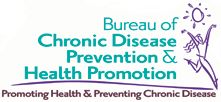Florida Breast and Cervical Cancer Early Detection Program
Florida Department of Health in Putnam County
- 386-326-3200 or 800-440-0420
- chd54webmaster@flhealth.gov
-
Fax
386-326-3350 -
Mailing Address
2801 Kennedy Street
Palatka, FL 32177
Applications/Solicitud
Forms/Formulario
The Florida Breast and Cervical Cancer Early Detection Program (FBCC) has been awarded funding by the Centers for Disease Control and Prevention (CDC) since 1994. The grant is administered through the FBCC central office and 17 lead County Health Department regional coordinators.
Services provided, as funding allows, include: As one of the lead programs, Putnam serves residents of Alachua, Bradford, Columbia, Dixie, Gilchrist, Hamilton, Lafayette, Levy, Putnam, Suwannee, and Union Counties.
Services provided include:
Breast and cervical cancer screening exams
Limited breast and cervical diagnostic services are reserved for women screened through the program
Care coordination and patient navigation for all clients with abnormal exams
Referrals by FBCC to Florida Medicaid for qualifying women screened and diagnosed with breast or cervical cancer
Program Qualifications
Women at any age with a personal history of breast cancer, or who have completed treatment for invasive cervical cancer may be eligible:
Women ages 50-64
Women ages 40-49 with a mother, sister, brother or
father diagnosed with breast cancer may also be eligible
Uninsured or underinsured not covered by Medicaid or Medicare
At or below 200% of the federal poverty level
Primary residence is in Florida
To see if you qualify, call 386-326-3281 or download our flyer to get more information on the program.
Men Get Breast Cancer Too
Men are least likely to report a breast lump to their physicians until it's increased in size and becomes more advanced. The FBCC federal program does not cover males. Please contact the office for other potential assistance.
Warning Signs and Possible Indications of Breast Cancer are the same in men as for women:
- A lump or swelling, which is usually (but not always) painless
- Skin changes: dimpling or puckering
- Nipple retraction (turning inward)
- Redness or scaling of the nipple or breast skin
- Discharge from the nipple
These signs do not always indicate cancer. If you have any of the above signs, symptoms or notice any changes, contact your medical practitioner.
Visit the American Cancer Society or call 1-800-ACS-2345, available 24 hours a day for information and support, or visit the Bureau of Chronic Disease Prevention & Health Promotion.




Connect with DOH